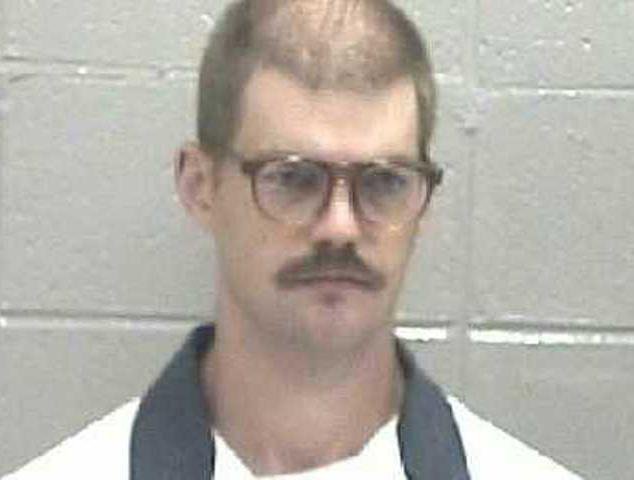JACKSON, Ga. — Georgia prison officials on Wednesday delayed the execution of a death row inmate who would have been the subject of the nation's first videotaped execution in nearly two decades.
It wasn't immediately clear why the state corrections department rescheduled the execution of Andrew Grant DeYoung for Thursday at 7 p.m. Attorney General Sam Olens would not say why it had been postponed.
The move came less than an hour after the U.S. Supreme Court had denied DeYoung's bid to halt the execution.
The Georgia Supreme Court earlier upheld a request by another death row inmate to videotape DeYoung's execution as part of his challenge to the state's execution procedure.
Experts say it would be the first known recording of an execution since 1992. In that California case, the state's method of execution using lethal gas was being challenged. The tape was later destroyed.
Olens and other officials who were on hand to monitor the execution did not say why it had been pushed back a day. When asked if the delay had to do with the video tape recording, Olens said "it's broader than that."
DeYoung was sentenced to die for the 1993 slayings of his parents and teenage sister in suburban Atlanta.
His attorneys argued that the state's use of pentobarbital as part of a lethal three-drug combination violated the constitutional ban on cruel and unusual punishment. But state and federal courts rejected the arguments.
Prosecutors also challenged a request to videotape the execution that was filed by Brian Kammer, an attorney for death row inmate Gregory Walker. Kammer said he wanted to preserve "the best evidence possible" for his client's challenge to the state's method of lethal injection.
State attorneys urged the Georgia Supreme Court to reverse a judge's ruling allowing the execution to be taped, worrying that it could set a troubling precedent. But justices said they unanimously dismissed the challenge because the state failed to follow proper appeal procedure.
Lawyers believe the only other time an execution was videotaped was in California in 1992, when attorneys were challenging the use of gas as a method of execution, said Kammer. That is also the understanding of Richard Dieter, executive director of the Washington-based Death Penalty Information Center, which opposes capital punishment.
Dieter said the tape of the California execution was later destroyed and he was aware of no other court-ordered videotaped execution. Dieter said Timothy McVeigh's 2001 execution at a federal prison in Indiana was broadcast on closed-circuit TV to a gathering of survivors and victims' family members in Oklahoma City, but there was no indication it was taped.
In seeking a stay, DeYoung's attorneys argued using pentobarbital would cause DeYoung to suffer based partly on accounts of Roy Blankenship's June 23 execution. An Associated Press reporter witnessed Blankenship jerking his head several times during the procedure, looking at the injection sites in his arms and muttering after the pentobarbital was injected into his veins.
It was the first time the drug was used in Georgia. Amid a national shortage of sodium thiopental, states have been turning to pentobarbital to carry out executions. The drug has now been used this year to put at least 18 inmates to death in eight states.
Death penalty critics have said Blankenship's unusual movements were proof that Georgia shouldn't have used pentobarbital to sedate him before injecting pancuronium bromide to paralyze him and then potassium chloride to stop his heart. State prosecutors have raised questions about the timeline cited in the AP's account and argued Blankenship's movements occurred before the sedative took hold.
The state attorney general's office has said adequate safeguards are in place to prevent needless suffering, including a consciousness check before the second and third drugs are administered. The consciousness check was used for the first time in Blankenship's execution.
In addition, prosecutors argued the courts have held that a certain amount of pain is acceptable during an execution.
DeYoung was convicted of stabbing to death his mother, father and 14-year-old sister, Sarah. Prosecutors said DeYoung, then a student at Kennesaw State University, killed his family as part of a plot to gain control of his parents' money so he could start a business.
Authorities said DeYoung cut the telephone wires of his family's home in the middle of the night. He then stabbed his mother repeatedly while she was sleeping upstairs, then also stabbed to death his father and sister, prosecutors said. A brother sleeping downstairs escaped after hearing the commotion and ran to a neighbor's house for help.
Georgia execution delayed
Inmate's lethal injection would have been videotaped


Sign up for the Herald's free e-newsletter